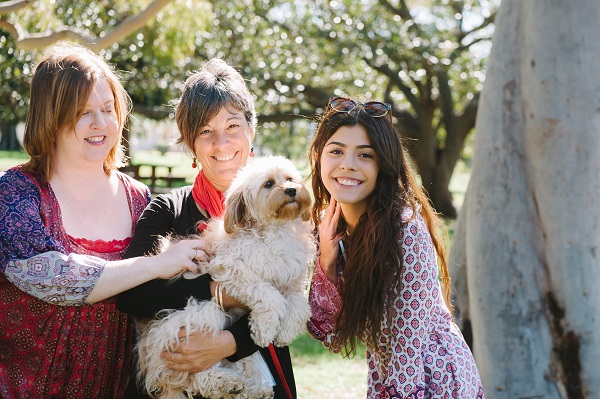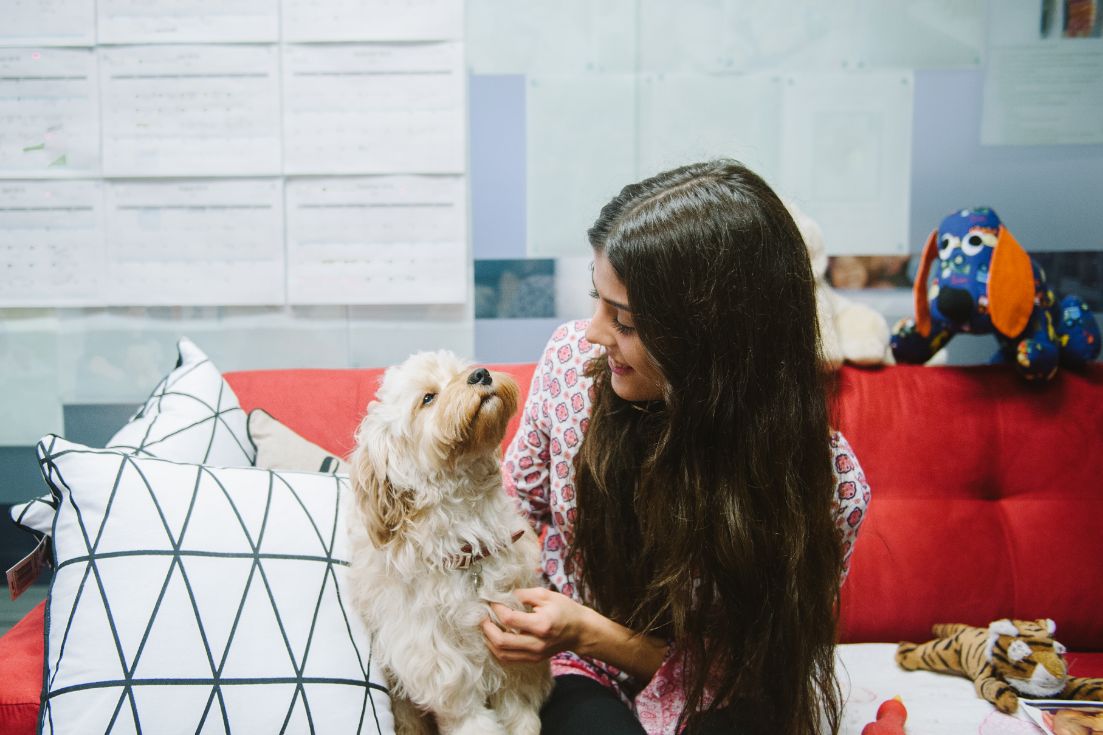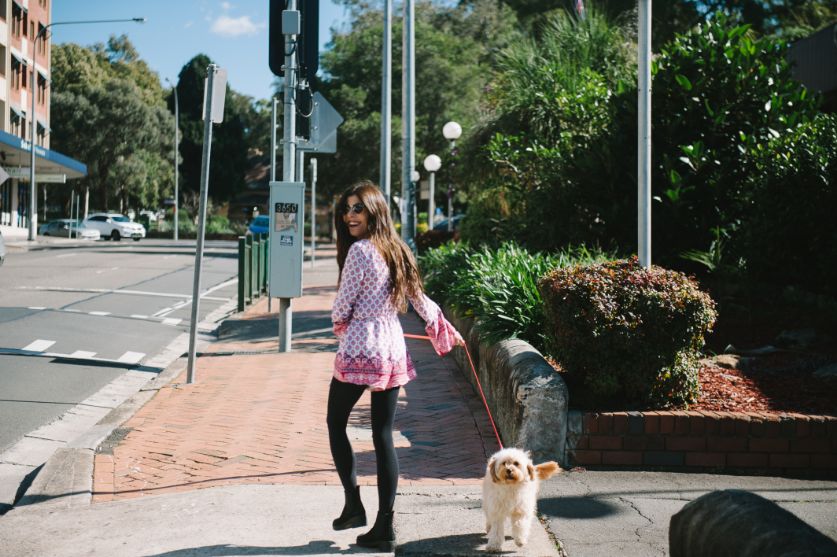Automatic language translation
Our website uses an automatic service to translate our content into different languages. These translations should be used as a guide only. See our Accessibility page for further information.

I heard about leaving care planning last year. At first I shoved it off, but as I got closer to turning 18, I got scared. I thought ‘oh shit’ I really have to grow up. I really have to be an adult. I hadn’t even mastered being a teenager! It wasn’t that long ago that I was using drugs and with a violent boyfriend. I got clean and got out of that relationship but it wasn’t easy. I had kidney failure due to the alcohol and drugs and I truly thought I was going to die. It was a scary time, but looking back it was the wake up call I needed. It was like I just woke up in my head. I needed to change. So I did.
Being clean and getting my life back on track was one thing. Thinking about leaving care was a whole other thing. I wasn’t ready to be left on my own. I wasn’t ready to be responsible for everything. I met Jacqui and Michele when it was time to start planning to leave care, and they brought a friend, Scout. They walked into the room and just put this little puppy on my lap. I wasn’t expecting that. It was good though. Scout was so cute and just wanted to play. They let me play with him. They didn’t push me to make life long plans straight away. They just sat with me. I kind of liked that. It wasn’t so scary. So I agreed to let them come back to see me, but only if Scout came along too.

I had a lot more meetings with them after that. Scout was there for every visit. He always seemed so happy to see me. It’s nice to have that kind of feeling, that feeling that someone, something is so happy to see you. It wasn’t just about Scout though. I have a team around me. I have back up now. I can call on Michele if I’m in trouble. I rely on her. She’s helped with a lot. You can tell she loves her work and that she loves making kids smile. It shows. Kids can always tell.
It can be hard to get older kids to talk to you. They so desperately want to stand on their own two feet. Their youthful naivety about all the good things that adulthood has to offer often plays out as them resisting us. But then as they get closer to that age, the fear sets in. The reality of independence dawns on them. It’s scary, lonely and filled with unknowns.
That’s how it was for Natasha. She was 17 and had just moved in with her aunt and uncle when we met her. She wasn’t too keen to open up to us. Why would she want to? Here we were coming into her life at the end of her time in care saying ‘we’re here to help.’ She had every right to hold us at a distance. To her we were just the next workers in her long list of workers. We were just more people that she had to tell her story to. It’s hard to bust through those initial visits. And it’s hard to get a young person to feel safe enough to tell you their story. They need to know you’re worthy of hearing it, that you’re going to listen and then do something to help them.
Scout doesn’t have the same challenge as us in getting to know kids. He’s our secret weapon. I haven’t met anyone yet that can resist that little fur ball. When we met Natasha we placed Scout straight on her lap – no introductions, no forced ‘getting to know you’ talk. We just walked into the room and put this eight week old puppy on her lap. The smile on her face just lit up the room. We were in. It was the beginning of a great relationship.
But of course Scout only gets us in the door. It is up to us to keep that door open. Michele is a master at keeping doors open. She has a lovely gentle nature but at the same time is a fierce advocate for the kids she works with. She made sure Natasha had a voice in the leaving care process. At times she was Natasha’s voice, and at other times she helped Natasha raise her voice loud. She really cares about the kids she works with, and it shows.
I think Natasha has learnt to trust us. I think she knows that she can rely on us. I even reckon she would let us in the door now without Scout! We have told Natasha our door is always open. When you raise your own kids and watch them leave to build their own life you make sure they know that your door is always open. Why should it be any different for Natasha? Our door will always be open to her.
It was important to me that Natasha saw that I was going to be one of those people that follow through. When kids have been let down all their life they just expect further let down. It’s the little things that make a difference – keeping appointments, returning calls, doing what you said you would do. These are the things that matter to them. After that first meeting I made a list of things that I needed to do. And I stuck to it. The next time I met Natasha she could see that I had done what I said I would. It was only one set of tasks though. I knew it would take more than that to prove that I deserved her time, so I just kept making lists and sticking to them. Maybe, just maybe, Natasha would see that I might be able to help, and believe that I actually cared about her.
Leaving care planning is a process not an event. It is built over time. I had to develop a picture of what was important to Natasha. Understand her hopes and dreams, help her put them in the words of goals, and then help her realise them. My job was to figure out what she needed, and then plan for all that life will throw at her in the first few years of independence. All the time I was balancing the practical tasks with the emotional toll that Natasha was facing, and that leaving care brings. It’s a big life event for the young people we work with. It can open up a flood of past memories and past hurt. It is a stark reminder that they lost their childhood, or don’t have the life long attachments or security that others take for granted.
It’s not just about helping with the necessities. Young people in care have a right to more than the basics. Natasha wanted to be an actor or a model, so I organised acting and modelling classes for her. She just loved those classes. She’s a real natural. It was a positive experience for her amongst a life time of many negative ones. Finding those opportunities is gold for the kids we work with. Natasha finally got to do something that she had always wanted to do. Something she had dreamed of. It was a nice gift to give. It’s one of the most important bits of this job – taking care where care hasn’t been taken.
Natasha is now finding her way in the world as a young adult. She still lives with her aunt and uncle, and with their support is dipping her feet into the world of adulthood. She is applying for jobs while she figures out if she wants to do more study. If she does, her plan is set up for it. She knows this and she knows how to access support if she ever wants to go back to school.
Natasha has so much potential. She is courageous and I have no doubt she will mature into a strong independent woman. The world is at her feet.

Executive Director, Design, Innovation, Safety and Permanency
Leaving care is an incredibly important but sometimes daunting time for young people in care. Practitioners must not underestimate the potential impact, both positive and negative in undertaking leaving care casework with young people. As Natasha recounted, she had not yet mastered being a teenager before being thrust into adulthood.
What struck me about this story was not only the way that Michele took a genuine interest in
Natasha’s future but thinking about engaging Natasha in an innovative way. Michele knew it would be a challenge but had a creative, effective and well thought out plan. She listened openly to Natasha’s dreams and worries but was also focussed on Natasha fulfilling those dreams. What also impressed me was Michelle’s ability and tenaciousness in building trust and developing a positive and healthy relationship with Natasha.
This story demonstrates how dream’s can become reality when young people like Natasha have positive and healthy support from the adults in their life. Make no mistake, dreams can become reality for all young people in OOHC. I hope this story encourages other caseworkers to think ‘outside the box’ and always keeping the young person at the centre of their work. Let’s hope one day you see Natasha or other young people who have been in care on the Silver Screen!
16 May 2023